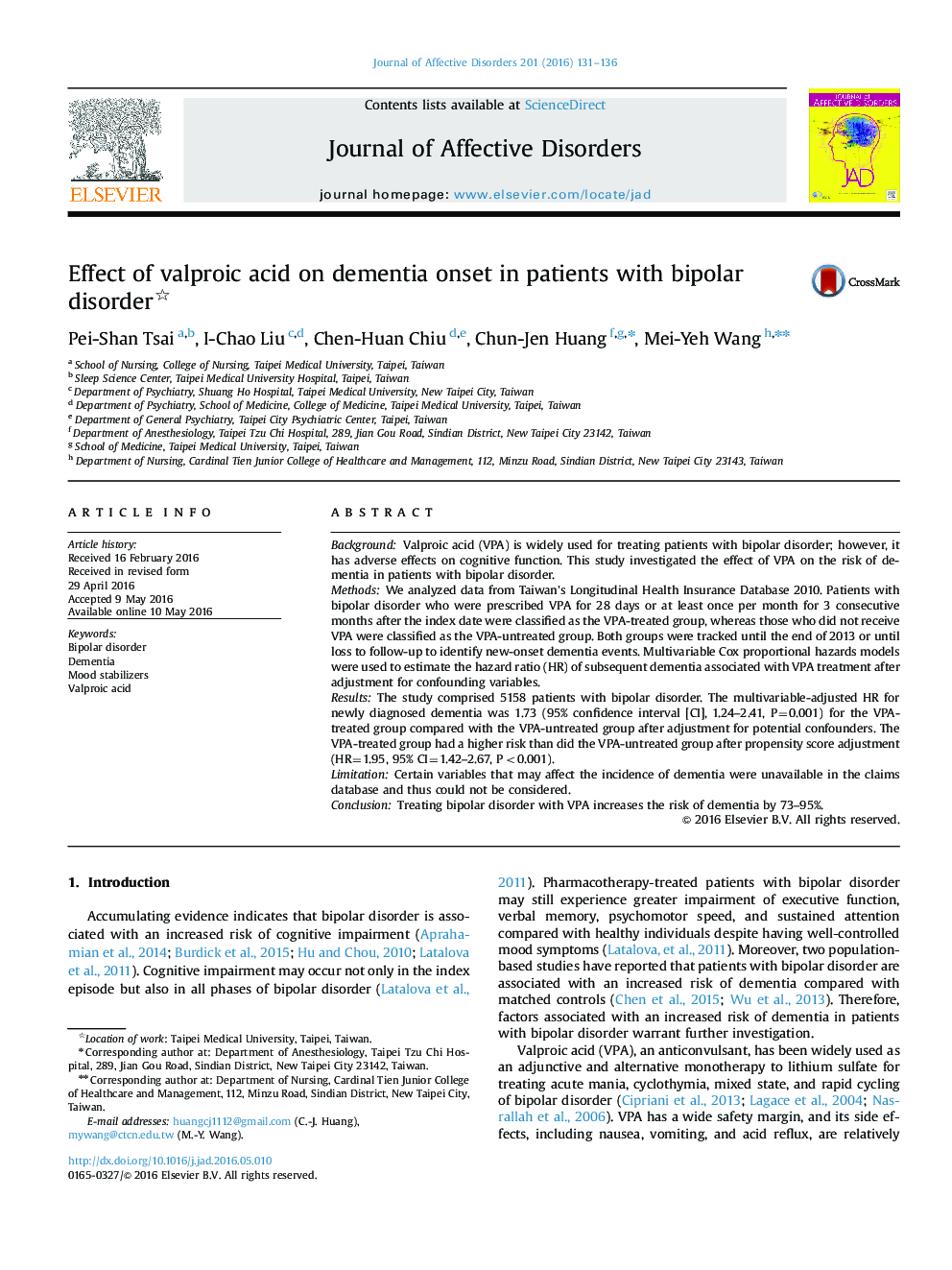| Article ID | Journal | Published Year | Pages | File Type |
|---|---|---|---|---|
| 6230018 | Journal of Affective Disorders | 2016 | 6 Pages |
â¢Bipolar disorder is associated with an increased risk of cognitive impairment.â¢Valproic acid (VPA) has adverse effects on cognition in VPA-treated patients.â¢Treating bipolar disorder with VPA is associated with increased dementia risk.
BackgroundValproic acid (VPA) is widely used for treating patients with bipolar disorder; however, it has adverse effects on cognitive function. This study investigated the effect of VPA on the risk of dementia in patients with bipolar disorder.MethodsWe analyzed data from Taiwan's Longitudinal Health Insurance Database 2010. Patients with bipolar disorder who were prescribed VPA for 28 days or at least once per month for 3 consecutive months after the index date were classified as the VPA-treated group, whereas those who did not receive VPA were classified as the VPA-untreated group. Both groups were tracked until the end of 2013 or until loss to follow-up to identify new-onset dementia events. Multivariable Cox proportional hazards models were used to estimate the hazard ratio (HR) of subsequent dementia associated with VPA treatment after adjustment for confounding variables.ResultsThe study comprised 5158 patients with bipolar disorder. The multivariable-adjusted HR for newly diagnosed dementia was 1.73 (95% confidence interval [CI], 1.24-2.41, P=0.001) for the VPA-treated group compared with the VPA-untreated group after adjustment for potential confounders. The VPA-treated group had a higher risk than did the VPA-untreated group after propensity score adjustment (HR=1.95, 95% CI=1.42-2.67, P<0.001).LimitationCertain variables that may affect the incidence of dementia were unavailable in the claims database and thus could not be considered.ConclusionTreating bipolar disorder with VPA increases the risk of dementia by 73-95%.
